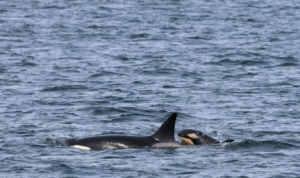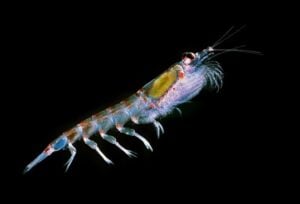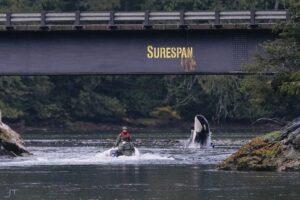
“It’s one of the world’s last natural rainforests. I feel lucky to live surrounded by such natural beauty, but I’m also reminded that this ecosystem has been affected by things like overharvesting, mismanagement and climate change.”
Danielle Shaw, Chief Councillor of the Wuikinuxv Nation
Take the time on World Ocean Day to learn about the Great Bear Sea, the threats it faces, and how the Great Bear Sea MPA Network can help restore the health of BC’s coast and its coastal communities.
Exploring the Wonders of the Great Bear Sea: A Crucial Ecosystem at Risk
The Great Bear Sea, a natural wonder tucked along the coast of British Columbia, Canada, is a testament to the intricate balance of nature. This vast marine ecosystem, teeming with life, needs to be defended with sustainable harvesting practices so that it remains a coastal economic engine for our children and grandchildren.

At the heart of the Great Bear Sea’s importance is its biodiversity. It’s home to a myriad of species, ranging from the smallest plankton to the majestic humpback whales. This area also serves as a critical habitat for the iconic white Spirit bear, known to the Indigenous peoples as the Moksgm’ol. The interdependence of these species underlines a fundamental truth: everything in the Great Bear Sea is connected. The loss of one species can have a cascading effect on the entire ecosystem and an equally negative impact on the coastal economy, which relies on the Great Bear Sea to be an economic engine.
However, the Great Bear Sea faces significant threats, primarily from human activities. Industrial overfishing, bottom dragging, poaching, and increased tanker traffic pose severe threats to this marine ecosystem and the economic health of coastal communities.
For these reasons, the Great Bear Sea needs our help.

The Indigenous communities, who have been the stewards of these lands and waters for millennia, play a vital role in the conservation of the Great Bear Sea. Their knowledge and respect for the land are crucial in shaping sustainable practices that can protect this ecosystem for future generations.
Read this article on the Globe and Mail for more information.




